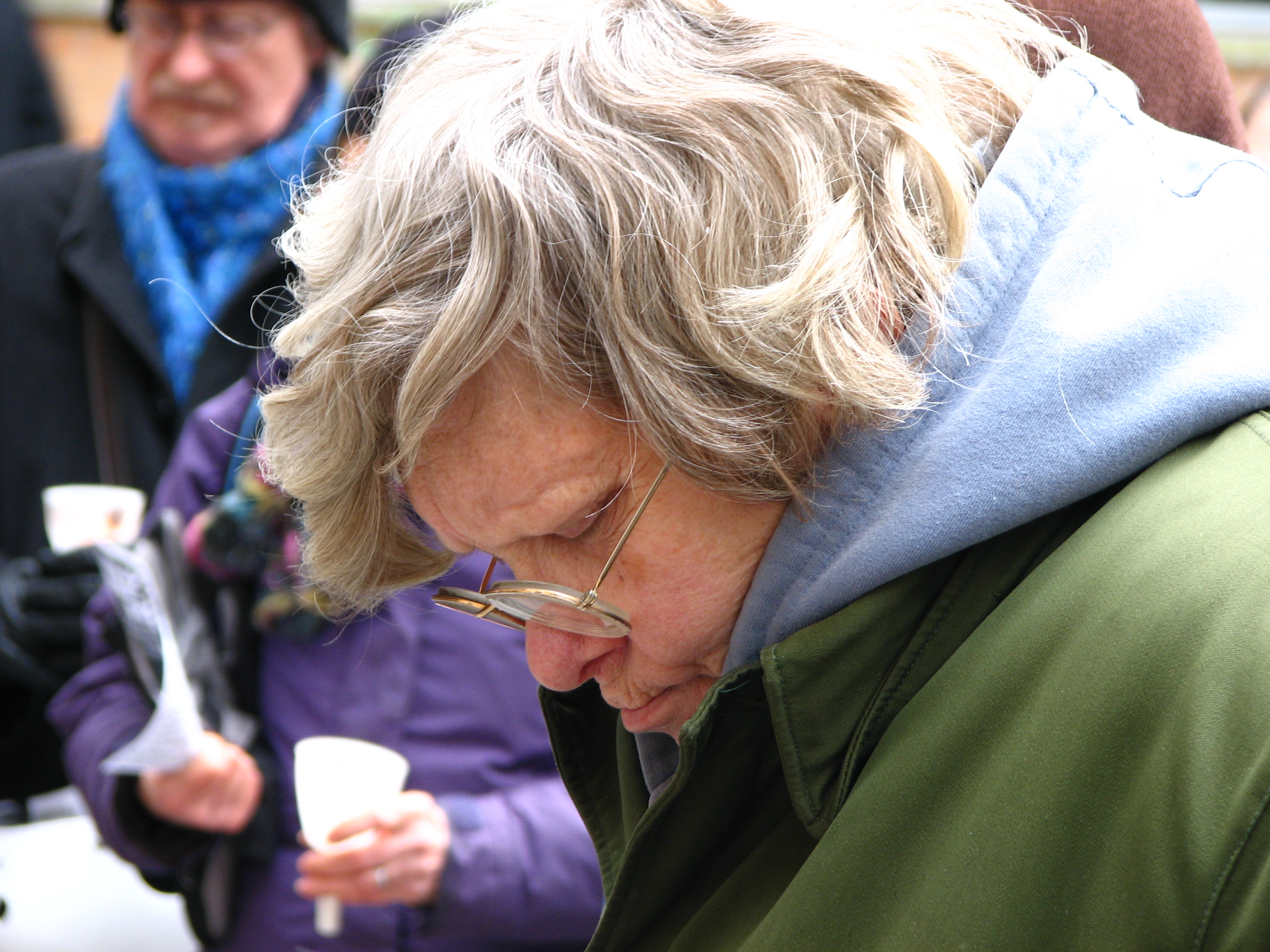Six homeless people died last month in Toronto. The largest number of homeless deaths in one month since May 2007.
But there were no front page headlines. No public outrage. No calls for more supportive and affordable housing by City Council.
Were it not for the dedicated efforts of a few activists, their deaths would have gone entirely unnoticed.
Instead, their names were added to the almost 700 others on the homeless memorial board outside the Church of the Holy Trinity during the monthly homeless memorial vigil on Tuesday.
Even now, their deaths mattered little to the lunch time crowd walking through the Eaton Centre courtyard next to the church. They carried shopping bags and wore ear buds, rushing past, barely glancing at the remembrance vigil.
For the outreach workers, street nurses, homeless and formerly homeless, it was a different story. For the people who work or live with homeless men and women on a daily basis.
For them, these deaths were personal. Very personal. So they are always hit hardest by their sudden passing.
The snow flurries that trickled down reminded everyone that the three coldest months of the year are just around the corner.
Without adequate housing or emergency shelter, they’re worried how many more deaths will occur between now and the springtime.
“This is not acceptable,” said Doug Johnson, street pastor at Sanctuary Ministries in Toronto.
“It’s also not unexpected given that we’ve seen more people on the streets since late spring, unlike since we’ve seen since 2005.”
In November, one died from heroin. Another was a war veteran who wound up homeless on the streets of Toronto.
“And we know that’s one of the problems with our military,” he said. “We send people off to fight in horrible ways and don’t care about the trauma that we’ve inflicted on them when they come back.”
A two spirited woman, homeless for about 10 years, also died in November. “She was often bullied or picked on or discriminated against based on her orientation,” said Johnson.
Often suicidal as a result of the constant persecution she endured just for being different, she hung herself on November 19.
A man with an untreated hernia that likely ruptured died too. So did an addict from an overdose. Someone else from an aneurysm.
“One of the things that happens when you’re on the streets is that your health deteriorates,” said Johnson.
Brian DuBourdieu was one of the lucky ones. After more than a decade on the streets and living in shelters, he secured housing five months ago.
“My health has improved at least 50 per cent already,” said DuBourdieu.
“When you’re on the streets, you’re living minute to minute. You’re just worried about food and where you’re going to sleep that night. You’re not worried about hospital appointments because you can’t keep them because without housing you don’t survive.
“Your mental health goes down. Your physical health goes down. And in the end you just don’t see no light at the end of the tunnel. And that turns into depression where people end up suicidal.”
DuBourdieu has seen a lot of his friends die over the years.
“And these are preventable deaths too,” said Johnson. “Yet the city just cut the budget for shelter and housing.”
Next year, the Toronto Shelter, Support & Housing Administration will see their budget cut by $128 million dollars in its housing and homelessness investments, down from $793 million in 2012 and $993 million in 2011.
“It’s going to be a cold winter because the resources are being starved,” said housing activist Michael Shapcott.
“The biggest culprit is the federal and provincial governments who are making massive cuts.”
In 2009, through its housing and opportunities plan, the city set out a comprehensive 10-year plan that included 1,000 new affordable rental units a year.
“This year, we’ll be lucky if we get a fraction of that because of the sharp cuts in federal and provincial funding,” said Shapcott.
Other cuts include 41,172 fewer hostel bed nights in the city’s homeless shelters, less housing followups and pre-employment supports, fewer meals in the shelter system and reductions in rent supplements.
“So it will be a very cold winter if this budget goes through,” said Shapcott.
“And we don’t want to continue to see more and more names added to the hundreds that are already on the Toronto homeless memorial board.”




